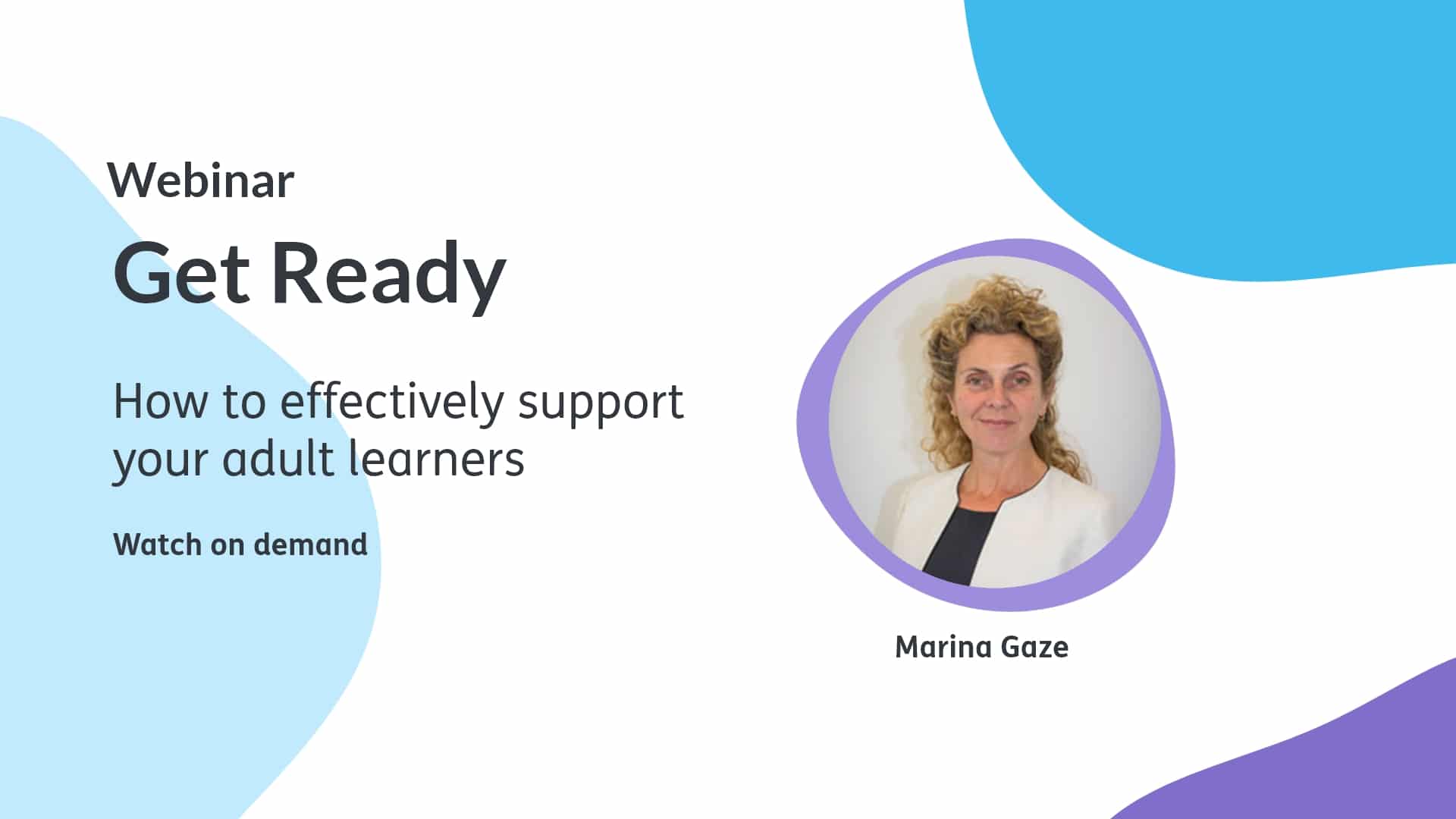
Get ready
The demand for adult learning courses will rise dramatically in the next 12 months. How we respond to this demand will make all the difference to the engagement and success of these learners.
Watch now
How to effectively support adult learners
Many adults, who will be seeking training to help them upskill and get back into work, will not have a track record of success in education and will likely come from low-income backgrounds. These adults will identify at similar rates to apprentices, and will, therefore, need support to achieve.
It’s essential that adult education providers support learners who have disengaged from education and prioritise re-engaging the most disadvantaged. Learners can be disadvantaged for various reasons, but adults with neurodiverse cognition will be at a significant disadvantage to their peers if they are not identified through a cognitive assessment and given personalised support. Equally, adults with low or no qualification may struggle to succeed in standard learning environments. Providers need to adapt to survive, creating more tailored and flexible learning suited to a range of identified needs.
You will learn more about:
- The responsibilities of adult education to use the Adult Education Budget to provide local job opportunities and follow the EIF.
- How effective support helps providers to evidence intent, implementation and impact in Ofsted inspections.
- How cognitive assessment and personalised learning can help adults to overcome different cognitive barriers and re-engage with learning.